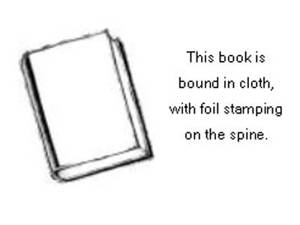
Bedankt voor het vertrouwen het afgelopen jaar! Om jou te bedanken bieden we GRATIS verzending (in België) aan op alles gedurende de hele maand januari.
- Afhalen na 1 uur in een winkel met voorraad
- In januari gratis thuislevering in België
- Ruim aanbod met 7 miljoen producten
Bedankt voor het vertrouwen het afgelopen jaar! Om jou te bedanken bieden we GRATIS verzending (in België) aan op alles gedurende de hele maand januari.
- Afhalen na 1 uur in een winkel met voorraad
- In januari gratis thuislevering in België
- Ruim aanbod met 7 miljoen producten
Zoeken
€ 141,45
+ 282 punten
Omschrijving
Robert A. Taft, the son of president and chief justice William H. Taft, is one of twentieth-century America's most prominent conservative legislators. Elected into office ten months before the outbreak of the Second World War, Taft quickly established himself as a leader among the anti-interventionists, fervently supporting legislation intended to keep the nation from engaging in another international war. In the years following the war, Taft embraced balance-of-power theories that he had belittled in earlier years, and his political arguments fell increasingly within the framework of anti-communism. First and foremost a consummate politician, Taft viewed the Republican party as the nation's most effective political instrument of progress. Robert A. Taft: Ideas, Tradition, and Party in U.S. Foreign Policy furnishes both an intellectual and historical context for Taft's twentieth-century conservatism. In this long overdue analysis, Clarence E. Wunderlin, Jr. explores Taft's ideological ties to the hundred-year long sweep of Whig and Republican party theory and practice. Building upon these foundations, Wunderlin carefully examines the concept of American nationalism that formed an important component of Taft's political thinking. Robert A. Taft is an original, engaging study that will be of great value to political theorists and those interested in twentieth-century intellectual history and political philosophy.
Specificaties
Betrokkenen
- Auteur(s):
- Uitgeverij:
Inhoud
- Aantal bladzijden:
- 272
- Taal:
- Engels
- Reeks:
Eigenschappen
- Productcode (EAN):
- 9780742544895
- Verschijningsdatum:
- 14/04/2005
- Uitvoering:
- Hardcover
- Formaat:
- Genaaid
- Afmetingen:
- 158 mm x 234 mm
- Gewicht:
- 403 g

Alleen bij Standaard Boekhandel
+ 282 punten op je klantenkaart van Standaard Boekhandel
Beoordelingen
We publiceren alleen reviews die voldoen aan de voorwaarden voor reviews. Bekijk onze voorwaarden voor reviews.









